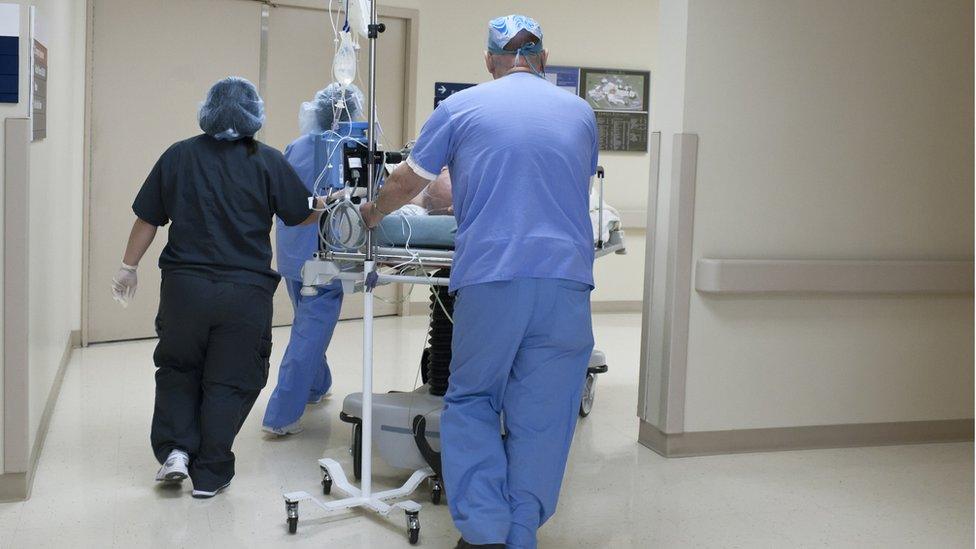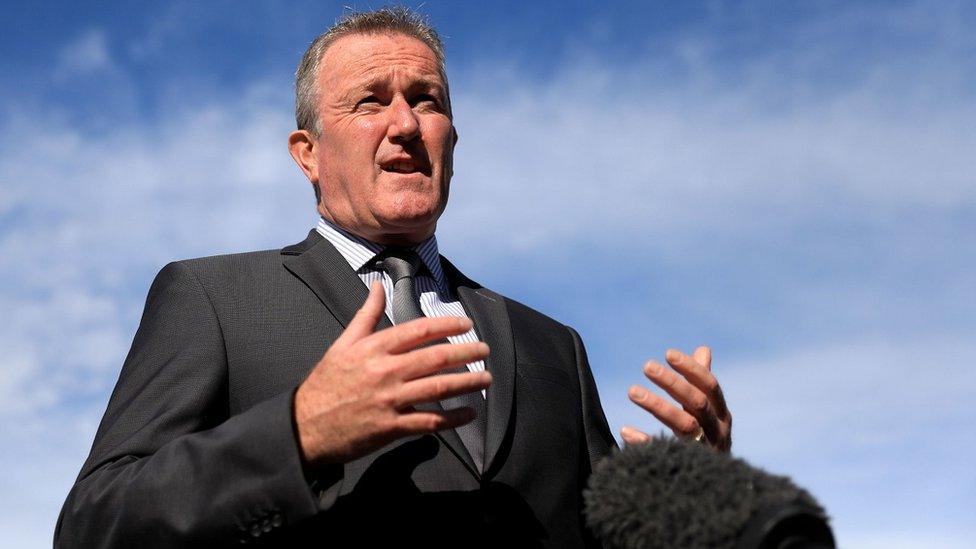Psychiatrists say multi-year budget is needed to increase workforce
- Published

One in five adult consultant psychiatry posts are currently unfilled in Northern Ireland
A multi-year budget is needed to help fill a "significant" number of vacant consultant psychiatrist posts in Northern Ireland, according to the Royal College of Psychiatrists.
It said with one in five adult consultant psychiatry posts currently unfilled, there was an urgent need to increase the number of training places.
A draft three-year budget had proposed a 10% increase in health spending.
That amounts to £21bn for services over the next three years.
However, the spending plan will not be agreed ahead of May's Northern Ireland Assembly election due to the absence of the executive.
Stormont's ministers, collectively known as the Northern Ireland Executive, cannot meet to take major decisions following the resignation of the DUP's Paul Givan as first minister earlier this month.
The organisation, which represents psychiatrists in Northern Ireland, has launched its own manifesto urging politicians to commit to boosting funding for mental health to meet the existing demand.
'Remains a vision'
Dr Richard Wilson, chairman of the Royal College of Psychiatrists in Northern Ireland, said the local workforce had been too small for many years.
"We only have a limited number of training places funded for young doctors coming in who want to train in psychiatry, so we would be looking for the funding to increase those posts and over time grow the workforce," he said.
"For learning disability psychiatry for instance there is a great need for additional staff, so I would be wanting to increase the numbers there.
"It would be good to be getting the young doctors into those posts and training them up so that we can aim towards having excellent services for patients in Northern Ireland.
"We need the funding put behind the proposals in the mental health strategy because unless the funding is there it remains a vision, it's not going to happen unless the funding is provided," he added.
A new mental health strategy was published by Health Minister Robin Swann in June last year which aims to create a workforce that is "fit for purpose".
'Required a collective effort'
A Department of Health spokesperson said: "While work is under way on a number of the strategy's actions, full implementation of the strategy is subject to securing significant additional investment, which cannot be funded from within the Department of Health's existing resources.
"Funding for implementing the strategy was included as part of the executive's draft budget 2022-25 consultation.
"The budget allocation for the strategy was £10.5m, £25.3m and £43m across the three-year period.
"Securing the necessary funding would have required a collective effort across the entire executive."
An online poll of more than 3,000 people conducted on behalf of the Royal College of Psychiatrists found four out of five people in Northern Ireland believe mental health services need more funding.
The survey carried out by the Northern Ireland pollsters LucidTalk also found younger adults were more concerned about funding for mental health services with 91% believing more investment is needed.
Related topics
- Published15 February 2022

- Published27 October 2022

- Published10 December 2021
